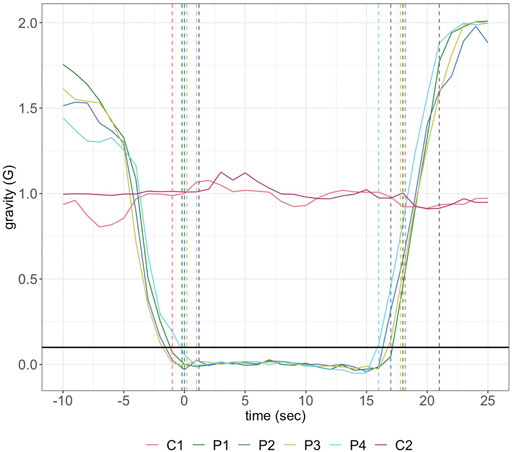Navigation
Install the app
How to install the app on iOS
Follow along with the video below to see how to install our site as a web app on your home screen.
Note: This feature may not be available in some browsers.
More options
Style variation
You are using an out of date browser. It may not display this or other websites correctly.
You should upgrade or use an alternative browser.
You should upgrade or use an alternative browser.
Exoplanets and Astrobiology
- Thread starter badger2
- Start date
- Thread starter
- #42
The Project Panoptes (above) seems to have failed for citizen science to take off. The forum on its website shows that many problems arose with the software connecting to the hardware. They asked questions an none responded. The gallant attempts by the High School students were for the most part the only signs of dynamic life on the board. The project seems defunct, though the idea is a stunning one. They were funded by a NASA program, and the cost of getting started is prohibitive.
On the other hand, interactive exoplanet data can be manipulated and worked with even if one does not own a telescope. The search continues for habitable red dwarfs and a current, dynamic citizen-science website, apart from NASA's pages.
On the other hand, interactive exoplanet data can be manipulated and worked with even if one does not own a telescope. The search continues for habitable red dwarfs and a current, dynamic citizen-science website, apart from NASA's pages.
- Thread starter
- #43
Project Panoptes was founded by one of the astronomers at Keck Observatory (post #40 of this thread), and it is the HIRES spectrograph at Keck that analyzed the lithium signature of the first brown dwarf to be described, Teide 1.
A brown dwarf below 65 Jupiter masses is unable to burn lithium by thermonuclear fusion, and Teide 1 is from the original meolecular cloud of the Pleiades. In the vetting of exoplanets for validation, Deeg et al's report (post #22 of this thread):' and enough in itself to validate a candidate whose radius falls below the theoretical lower limit of a brown dwarf.'
Teide 1 links to these observatories in the Canary Islands, site of recent volcanic activity:
Teide 1

 en.wikipedia.org
'....was the first brown dwarf to be verified in 1995....detected by Rafael Rebolo Lopez, Maria R. Zapatero-Osorio, and Eduardo Martin on optical images obtained in Jan 1994, with the 0.08 meter diameter telescope (IAC-80) from the Instituto de Astrofisica de Canarias on the island of Tenerife.... confirmed at La Palma's Roque de los Muchachos....Keck Observatory HIRES on Mauna Kea confirmed the lithium signature.'
en.wikipedia.org
'....was the first brown dwarf to be verified in 1995....detected by Rafael Rebolo Lopez, Maria R. Zapatero-Osorio, and Eduardo Martin on optical images obtained in Jan 1994, with the 0.08 meter diameter telescope (IAC-80) from the Instituto de Astrofisica de Canarias on the island of Tenerife.... confirmed at La Palma's Roque de los Muchachos....Keck Observatory HIRES on Mauna Kea confirmed the lithium signature.'
A brown dwarf below 65 Jupiter masses is unable to burn lithium by thermonuclear fusion, and Teide 1 is from the original meolecular cloud of the Pleiades. In the vetting of exoplanets for validation, Deeg et al's report (post #22 of this thread):' and enough in itself to validate a candidate whose radius falls below the theoretical lower limit of a brown dwarf.'
Teide 1 links to these observatories in the Canary Islands, site of recent volcanic activity:
Teide 1

Teide 1 - Wikipedia
- Thread starter
- #46
Microorganisms and PCR in Astrobiology
This study used a yeast mutant to elucidate the aspects of DNA repair in microgravity, which will be an important parameter in future space missions. They simulated microgravity from a Canadian airport:
Toronto/Kingston, Ontario, Canada: Fidelity of a Bacterial DNA Polymerase in Microgravity: A Model for Health in Space

 www.frontiersin.org
'....Klenow fragment....Rad54-3 yeast mutants....temperature-conditional for DSB (double-strand-breaks) repair, had decreased DNA repair capabilities in orbit.
www.frontiersin.org
'....Klenow fragment....Rad54-3 yeast mutants....temperature-conditional for DSB (double-strand-breaks) repair, had decreased DNA repair capabilities in orbit.
....
Space-based microgravity, as well as microgravvity for ~20-second intervals during parabolic flight is termed "real microgravity"....substitutions may occur in the keto-enol tautomerization or oxidation of DNA bases, resulting in non-canonical base-pairing....Klenow (exo-) has neither 3'---->5' or 5'---->3' exonuclease activity due to inactivating mutations (D355A & E357A) in the proof-reading domain....considered a model polymerase.
Klenow fragment enters its steady-state phase within 20 seconds, as pre-steady-state elongation occurs within the first 100 msec from reaction initiation. These experiments are timely as astronauts are currently preparing to undertake prolonged exploratory missions where robust polymerase repair activities are essential for survival.
The results of this experiment also have applicability in biotechnology. Taq polymerase, the most commonly used enzyme for conducting PCR, is a 3'--->5' proofreading exonuclease-deficient DNA polymerase I derived from Thermus aquaticus. Therefore, the increase in the error rate of Klenow (exo-) in microgravity observed here may be applicable to the fidelity of Taq polymerase-mediated PCR in microgravity, and is therefore relevant for future biological research in space.
Even the relatively small decrease in polymerase fidelity observed in microgravity of Klenow (exo-), when adjusted based on the fidelity of Taq polymeriase and propagated over 30 cycles for a 1KB template, yields a concerning ~335% increase in incorrect templates in solution.'
This study used a yeast mutant to elucidate the aspects of DNA repair in microgravity, which will be an important parameter in future space missions. They simulated microgravity from a Canadian airport:
Toronto/Kingston, Ontario, Canada: Fidelity of a Bacterial DNA Polymerase in Microgravity: A Model for Health in Space

Frontiers | Fidelity of a Bacterial DNA Polymerase in Microgravity, a Model for Human Health in Space
Long-term space missions will expose crew members, their cells as well as their microbiomes to prolonged periods of microgravity and ionizing radiation, envi...
....
Space-based microgravity, as well as microgravvity for ~20-second intervals during parabolic flight is termed "real microgravity"....substitutions may occur in the keto-enol tautomerization or oxidation of DNA bases, resulting in non-canonical base-pairing....Klenow (exo-) has neither 3'---->5' or 5'---->3' exonuclease activity due to inactivating mutations (D355A & E357A) in the proof-reading domain....considered a model polymerase.
Klenow fragment enters its steady-state phase within 20 seconds, as pre-steady-state elongation occurs within the first 100 msec from reaction initiation. These experiments are timely as astronauts are currently preparing to undertake prolonged exploratory missions where robust polymerase repair activities are essential for survival.
The results of this experiment also have applicability in biotechnology. Taq polymerase, the most commonly used enzyme for conducting PCR, is a 3'--->5' proofreading exonuclease-deficient DNA polymerase I derived from Thermus aquaticus. Therefore, the increase in the error rate of Klenow (exo-) in microgravity observed here may be applicable to the fidelity of Taq polymerase-mediated PCR in microgravity, and is therefore relevant for future biological research in space.
Even the relatively small decrease in polymerase fidelity observed in microgravity of Klenow (exo-), when adjusted based on the fidelity of Taq polymeriase and propagated over 30 cycles for a 1KB template, yields a concerning ~335% increase in incorrect templates in solution.'
- Thread starter
- #47
Turning an Astronomy tenet topsy-turvy in 1995, was the discovery that showed that our Solar System was not unique:
The first exoplanet detected around a solar-type star, 51 Peg B, had very surprising characteristics. With a mass of at least half the one of Jupiter, it revolved around its star in quasi-circular orbit with an incredibly short period of only four days. The average distance to the star was therefore only 0.05 astronomical units!
The news had the effect of a bomb. First of all, this discovery finally confirmed what was then only an intuition or a supposition: the Solar System is not unique in the Universe. But moreover, this exoplanet -- a giant exoplanet very close to its star -- was very different from the planets of our Solar System! That latter, though not unique, is not a universal model, and it will soon be seen that "hot Jupiters," Like 51 Peg B, are relatively frequent.
The official announcement of this discovery was made in Florence on 6 Oct 1995 at an international conference on stellar physics. The authors are Michael Mayor and Didier Queloz, from the Geneva Observatory. For a year they collected measurements using a hig resolution spectrometer, ELODIE, installed on the 1.93 meter diameter telescope of the Haute-Provence Observatory.....article published on 23 Nov 1995, "A Jupiter-Mass Companion to a Solar-Type Star." '
(Lequeux J, Encrenaz T, Casoli F, Observatoire de Paris, Meudon, The Exoplanet Revolution, (2020) p. 36)
The first exoplanet detected around a solar-type star, 51 Peg B, had very surprising characteristics. With a mass of at least half the one of Jupiter, it revolved around its star in quasi-circular orbit with an incredibly short period of only four days. The average distance to the star was therefore only 0.05 astronomical units!
The news had the effect of a bomb. First of all, this discovery finally confirmed what was then only an intuition or a supposition: the Solar System is not unique in the Universe. But moreover, this exoplanet -- a giant exoplanet very close to its star -- was very different from the planets of our Solar System! That latter, though not unique, is not a universal model, and it will soon be seen that "hot Jupiters," Like 51 Peg B, are relatively frequent.
The official announcement of this discovery was made in Florence on 6 Oct 1995 at an international conference on stellar physics. The authors are Michael Mayor and Didier Queloz, from the Geneva Observatory. For a year they collected measurements using a hig resolution spectrometer, ELODIE, installed on the 1.93 meter diameter telescope of the Haute-Provence Observatory.....article published on 23 Nov 1995, "A Jupiter-Mass Companion to a Solar-Type Star." '
(Lequeux J, Encrenaz T, Casoli F, Observatoire de Paris, Meudon, The Exoplanet Revolution, (2020) p. 36)
- Thread starter
- #48
Notes on Red Dwarfs
James Webb telescope will likely eventually view some red dwarfs of interest. Linking astrobiology to red dwarfs as potentially valid habitable exoplanets is this Italian study:
Red Dwarf Starlight Used to Grow Photosynthesizing Bacteria
'....Chlorogleopsis thermalis....Synechocystis....it was able to harvest what non-red light the star produces.'
(2017) Vegetation Red Edge (VRE) / Land Plants / Tidally-Locked M Dwarfs (Paywall: $51) Ministry of Education Key Laboratory for Earth System Modeling, Beijing, China; Dept. Of Atmospheric and Oceanic Sciences, McGill U. Montreal; Institute for the Study of Earth, Oceans, and Space, U. New Hampshire, Durham.

 pubmed.ncbi.nlm.nih.gov
pubmed.ncbi.nlm.nih.gov
Instituto de Astrofisica de Canarias / Australia, Spain, Germany, Switzerland, California / Red Dwarf GJ 887 (Paywall: $15)

 pubmed.ncbi.nlm.nih.gov
'....liquid water habitable zone....equilibrium temperature ~ 350 Kelvin.'
pubmed.ncbi.nlm.nih.gov
'....liquid water habitable zone....equilibrium temperature ~ 350 Kelvin.'
James Webb telescope will likely eventually view some red dwarfs of interest. Linking astrobiology to red dwarfs as potentially valid habitable exoplanets is this Italian study:
Red Dwarf Starlight Used to Grow Photosynthesizing Bacteria
'....Chlorogleopsis thermalis....Synechocystis....it was able to harvest what non-red light the star produces.'
(2017) Vegetation Red Edge (VRE) / Land Plants / Tidally-Locked M Dwarfs (Paywall: $51) Ministry of Education Key Laboratory for Earth System Modeling, Beijing, China; Dept. Of Atmospheric and Oceanic Sciences, McGill U. Montreal; Institute for the Study of Earth, Oceans, and Space, U. New Hampshire, Durham.

On the Growth and Detectability of Land Plants on Habitable Planets around M Dwarfs - PubMed
One signature of life on Earth is the vegetation red edge (VRE) feature of land plants, a dramatic change of reflectivity at wavelength near 0.7 μm. Potentially habitable planets around M dwarfs are tidally locked, which can limit the distribution of land plants. In this study, we used a...
Instituto de Astrofisica de Canarias / Australia, Spain, Germany, Switzerland, California / Red Dwarf GJ 887 (Paywall: $15)

A multiplanet system of super-Earths orbiting the brightest red dwarf star GJ 887 - PubMed
The closet exoplanets to the Sun provide opportunities for detailed characterization of planets outside the Solar System. We report the discovery, using radial velocity measurements, of a compact multiplanet system of super-Earth exoplanets orbiting the nearby red dwarf star GJ 887. The two...
- Thread starter
- #49
Discover Magazine: Red Dwarf Starlight Used to Grow Photosynthesizing Bacteria

 www.discovermagazine.com
www.discovermagazine.com

Red Dwarf Starlight Used to Grow Photosynthesizing Bacteria
Extremophiles grown under a starlight simulator suggest that exoplanets orbiting red dwarf stars may have conditions ripe for photosynthesis, say researchers.
- Thread starter
- #50
For amateur astronomers seeking to help keep exoplanet ephemerides freshened, there are caveats:
'To date, two dedicated works have been published: For one, the re-determination of transit ephemeris from ground-observation for six CoRoT planets by Raetz et al (2019, hereafter, R19), and for another, ground-based transit epochs for 20 CoRoT planets by Deeg et al (2020), with five planets covered by both R19 and D20. Of note is also the collection of re-observations which are compiled in the Exoplanet Transit database (ETD Poddany et al 2010). These data are mainly acquired by amateurs; in many cases (see also comments in D20, Table 1) they are however of insufficient quality for a reliable re-determination of a new ephemeris.'
(Deeg et al, Orbital Refinement of CoRoT Planets with TESS Observations, Frontiers in Astronomy and Space Sciences, Dec 2020 8:792823)
'To date, two dedicated works have been published: For one, the re-determination of transit ephemeris from ground-observation for six CoRoT planets by Raetz et al (2019, hereafter, R19), and for another, ground-based transit epochs for 20 CoRoT planets by Deeg et al (2020), with five planets covered by both R19 and D20. Of note is also the collection of re-observations which are compiled in the Exoplanet Transit database (ETD Poddany et al 2010). These data are mainly acquired by amateurs; in many cases (see also comments in D20, Table 1) they are however of insufficient quality for a reliable re-determination of a new ephemeris.'
(Deeg et al, Orbital Refinement of CoRoT Planets with TESS Observations, Frontiers in Astronomy and Space Sciences, Dec 2020 8:792823)
- Thread starter
- #52
An example of coordinating international telescopes is here:
'Due to the long orbital period, the transits of CoRoT-9b last 8.1 hours with in/egresses of about 1 hour, implying that transit features are difficult to detect due to the slowly varying flux-levels. The light curve of a transit on 2014 Aug 20 was acquired first with the 2-m LCO telescope on Mt. Haleakala, Hawaii followed by the 1-m LCO telescope at Siding Springs, Australia, using in both cases a PanSTARRS i-band filter....The best shows an excellent agreement between the model and the data and indicates a Tc that is only 8 minutes later than predicted by the ephemeris of Bonomo et al (2017).
....
CoRoT-9b. After discovery of this planet (Deeg et al 2010), a further transit was observved by CoRoT itself in a dedicated pointing On 2011 Jul 4, which was observed simultaneously by the Spitzer mission in the 4.5 micrometer band (Bonomo, 2017). The mid-transit times, Tc, differ between CoRoT and Spitzer observation by only 104 seconds, which implies that transit mid-times have little dependence on the wavelength.
....
CoRoT-10b was one of the CoRoT planets which was in danger of getting "lost" (Deeg et al 2015) and our re-observation permits a dramatic increase in the precision of its ephemeris.'
'Due to the long orbital period, the transits of CoRoT-9b last 8.1 hours with in/egresses of about 1 hour, implying that transit features are difficult to detect due to the slowly varying flux-levels. The light curve of a transit on 2014 Aug 20 was acquired first with the 2-m LCO telescope on Mt. Haleakala, Hawaii followed by the 1-m LCO telescope at Siding Springs, Australia, using in both cases a PanSTARRS i-band filter....The best shows an excellent agreement between the model and the data and indicates a Tc that is only 8 minutes later than predicted by the ephemeris of Bonomo et al (2017).
....
CoRoT-9b. After discovery of this planet (Deeg et al 2010), a further transit was observved by CoRoT itself in a dedicated pointing On 2011 Jul 4, which was observed simultaneously by the Spitzer mission in the 4.5 micrometer band (Bonomo, 2017). The mid-transit times, Tc, differ between CoRoT and Spitzer observation by only 104 seconds, which implies that transit mid-times have little dependence on the wavelength.
....
CoRoT-10b was one of the CoRoT planets which was in danger of getting "lost" (Deeg et al 2015) and our re-observation permits a dramatic increase in the precision of its ephemeris.'
- Thread starter
- #54
NASA tumor and skin aging microgravity studies link to SARS-CoV-2.
2022 Feb 5 MicroQuin 3D Tumor / Liftoff Saturday 2022 Feb 19, Wallops, Island, Virginia
'....TMBIM6 proteins....'
On other USMB threads, we have already shown the location of attachment of quercitin to the SARS-CoV-2 spike protein.
2021 Mar / TMBIM6 / Quercitin / Cardiomyocyte Vulnerability to Hypoxia

 pubmed.ncbi.nlm.nih.gov
pubmed.ncbi.nlm.nih.gov
China 2021 Ap 15 / TMBIM6 / SARS-CoV-2

 pubmed.ncbi.nlm.nih.gov
'....Interestingly, we found that TMBIM6 showed prominent co-expression with all viral proteins identified in the blue module, indicating that TMBIM6 is a key element influenced by the infection of SARS-CoV-2 in the cells.'
pubmed.ncbi.nlm.nih.gov
'....Interestingly, we found that TMBIM6 showed prominent co-expression with all viral proteins identified in the blue module, indicating that TMBIM6 is a key element influenced by the infection of SARS-CoV-2 in the cells.'
2022 Feb 5 MicroQuin 3D Tumor / Liftoff Saturday 2022 Feb 19, Wallops, Island, Virginia
'....TMBIM6 proteins....'
On other USMB threads, we have already shown the location of attachment of quercitin to the SARS-CoV-2 spike protein.
2021 Mar / TMBIM6 / Quercitin / Cardiomyocyte Vulnerability to Hypoxia

Quercetin Improves Cardiomyocyte Vulnerability to Hypoxia by Regulating SIRT1/TMBIM6-Related Mitophagy and Endoplasmic Reticulum Stress - PubMed
Cardiomyocyte apoptosis is an important pathological mechanism underlying cardiovascular diseases and is commonly caused by hypoxia. Moreover, hypoxic injury occurs not only in common cardiovascular diseases but also following various treatments of heart-related conditions. One of the major...
China 2021 Ap 15 / TMBIM6 / SARS-CoV-2

TMBIM6, a potential virus target protein identified by integrated multiomics data analysis in SARS-CoV-2-infected host cells - PubMed
Coronavirus disease 2019 (COVID-19) is caused by severe acute respiratory syndrome coronavirus 2 (SARS-CoV-2). In this study, we collected open access data to analyze the mechanisms associated with SARS-CoV-2 infection. Gene set enrichment analysis (GSEA) revealed that apoptosis-related pathways...
- Thread starter
- #55

Intriguing NASA Science Experiments on Next Northrop Grumman Space Station Mission
Scientific investigations on skin aging and tumor cells, along with tests of technology for oxygen production, batteries, and growing plants, all travel on the 17th Northrop Grumman commercial resupply services mission to the International Space Station. The Cygnus spacecraft is scheduled for lif
scitechdaily.com
- Thread starter
- #56
Notes on Red Dwarfs, continued
It took some time, though with the cooperation of multiple observations, the computer read out the results in 2017:
The Discovery of LHS 1140b
pestobservatory.com/the-discovery-of-lhs-1140b/
'....period of 24.7 days....a rocky planet in the habitable zone of a small, placid, red star....'
It took some time, though with the cooperation of multiple observations, the computer read out the results in 2017:
The Discovery of LHS 1140b
pestobservatory.com/the-discovery-of-lhs-1140b/
'....period of 24.7 days....a rocky planet in the habitable zone of a small, placid, red star....'
- Thread starter
- #58
An excellent example of an "amateur" exoplanet hunter is TG Tan (Perth, Australia), who has discovered many exoplanets and has also co-authored with Badger's ex-roommate, HJ Deeg:
(2009) Deeg, Tan, et al, A Planetary System with Two Transiting Mini-Neptunes Near the Radius Valley Transition Around the Bright M Dwarf TOI-776.
They mention in the above article that TOI-776 will be an excellent target for the James Webb telescope. When it's operational, the Webb should be collecting atmospheric signatures from these exo-Neptunes such as corundum (Al2O3), titanium oxide (TiO), vanadium oxide (VO), etc.
We are now studying Tan's pipeline protocol which runs in Linux/Ubuntu. Here is his backyard setup, which takes images while the operator is sleeping:
 pestobservatory.com
pestobservatory.com
For those working on mobile systems, an excellent dark sky site for the Midwest is Newport State Park, Wisconsin:

(2009) Deeg, Tan, et al, A Planetary System with Two Transiting Mini-Neptunes Near the Radius Valley Transition Around the Bright M Dwarf TOI-776.
They mention in the above article that TOI-776 will be an excellent target for the James Webb telescope. When it's operational, the Webb should be collecting atmospheric signatures from these exo-Neptunes such as corundum (Al2O3), titanium oxide (TiO), vanadium oxide (VO), etc.
We are now studying Tan's pipeline protocol which runs in Linux/Ubuntu. Here is his backyard setup, which takes images while the operator is sleeping:
Perth Exoplanet Survey Telescope – Searching for New Worlds
 pestobservatory.com
pestobservatory.com
For those working on mobile systems, an excellent dark sky site for the Midwest is Newport State Park, Wisconsin:

Door County’s Internationally Recognized Dark Sky | Destination Door County
Viewing Door County’s night sky is a favorite activity for many visitors and locals in the county. Now the rest of the world knows it.
www.doorcounty.com
- Thread starter
- #59
The James Webb telescope will focus on a star similar to our own, HD 84406.
Webb First Photons

 www.inverse.com
www.inverse.com
HD 84406

 en.wikipedia.org
en.wikipedia.org
Webb First Photons

NASA confirms the Webb Telescope has successfully detected its first photons
The James Webb Space Telescope has captured its first photons — the genesis of its scientific mission to image the universe in new ways.
HD 84406

James Webb Space Telescope - Wikipedia
- Thread starter
- #60
For astronomers professional and amateur, doing time-lapse astrophotometry for 16 minutes at a dark sky site is the equivalent of 4 hours observing time in suburbia. The new sky pollution includes Amazon and other broadband players, from this 28 Jan article:
2022 Jan 28 Sky Pollution: Satellite Streaks

 www.sciencefriday.com
www.sciencefriday.com
2022 Jan 28 Sky Pollution: Satellite Streaks

It’s A Bird. It’s A Plane. It’s An Astronomical Photo Bomb.
Internet satellites are interfering with astronomical research—and the problem is only getting worse.
Similar threads
- Replies
- 29
- Views
- 2K
- Replies
- 102
- Views
- 893
- Replies
- 250
- Views
- 2K
- Replies
- 5
- Views
- 823
New Topics
-
-
ICE Confirms 65,000 Deportations, Majority With Criminal Records
- Started by Mack The Finger
- Replies: 3
-
Bondi claims 1/3 of all Americans would have died in last 100 days if not for Trump.
- Started by BULLDOG
- Replies: 14
-
Latest Discussions
-
-
-
-
-
Ukraine signs rare earth metals agreement. What will Russia do now?
- Latest: georgephillip